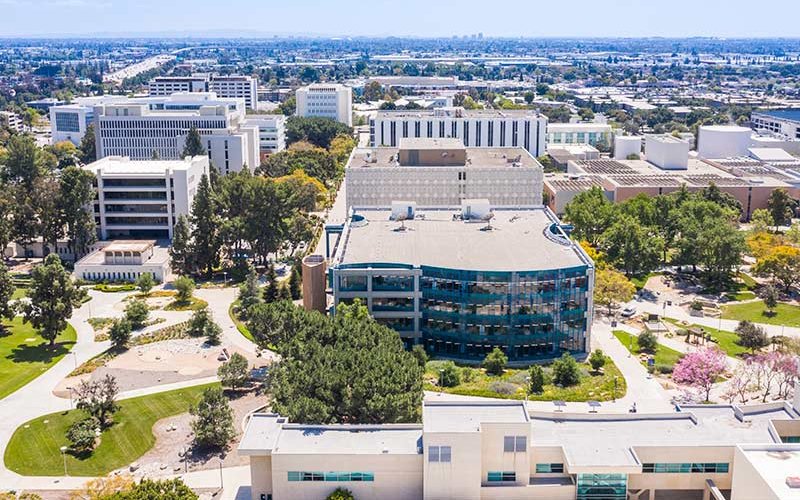
Cal State Fullerton secured $31.5 million in grants and contracts in 2019-20, breaking the campus’ previous record of $27.4 million the year before.
Binod Tiwari, associate vice president of research and sponsored projects, attributes the success to cross-campus support for and participation in initiatives designed to instill a culture of grant writing at the university.
Why does a teaching institution need grants?
“That is the million-dollar question,” Tiwari laughed. “CSUF actually follows a teacher-scholar model where teaching is the main focus, but research is also important.
“Faculty doing research keeps our teaching current. And when we engage undergraduates in that research, it can change their lives.”
“Faculty members need to publish to put themselves on the map, and they need to do research to publish. Our faculty have a heavy teaching load, so they have less time to write grants. But they need funding to do research.”
Spurring success with seed funding
A paradox in obtaining grant funding is showing previous success with such funding when the applicant hasn’t yet obtained any. To address this, the Office of Research and Sponsored Projects offers intramural or seed funding — small grants that allow faculty to gather preliminary research data before writing a full proposal and developing a track record of achievement.
The university awarded $586,000 in seed grants in 2019-20: 19 Research Scholarship and Creative Activity Grants of up to $15,000 each and 61 Junior/Senior Faculty Research Grants of $5,000 or less (compared to 33 previously).
“These grants are important to get faculty started, but the only way for them to expand their research is to seek outside funding,” Tiwari said.
Training, mentoring and collaborating
To improve the quality of grant proposals before they are submitted, ORSP offers mentorship for junior faculty in proposal development and proposal review services.
For the notoriously complex federal grant writing process, Tiwari established a yearlong mentorship program targeted at tenure-track, early career faculty. The first cohort of nine is currently learning how to find grants, write concept papers and develop proposals.
“Then we bring them to Washington, D.C. to meet with funders such as the Department of Education,” Tiwari shared. “But this is virtual now, of course.”
Also affected by the travel restrictions of the pandemic is the Faculty Travel Grant program. Faculty may apply for up to $1,000 for grant-related travel if they have a paper accepted for a conference, are meeting with program directors at a federal funding agency or are attending a training workshop at a sponsoring organization.
“Travel grants allow faculty to disseminate research at conferences and increase CSUF’s exposure,” explained Tiwari. “The presenting faculty member might pique the interest of other attendees and form collaborations that can extend funding, too.”
How to get more and larger grants
Tiwari is both optimistic and pragmatic about CSUF obtaining more and larger sized grants.
“My philosophy is this: What we get, we have no control over. What we can control is applying for more to improve our odds and to get more practice in applying.”
He is highly encouraged by the fact that CSUF’s total grant submissions increased more than 30% last year compared to the previous one ($74.6 million vs. $56.1 million).
In addition, Tiwari is emphasizing collaboration on grants. “We’re a large university and can strengthen our cross-college and cross-disciplinary collaborations. Funders like the synergies and potentially greater impact that partnerships can bring, and awards can be larger.”
Tiwari is pleased with the results of these programs but acknowledges there’s much more to be done. All of the initiatives will continue in 2020-21 and he hopes to add a summer research institute to engage students in faculty/student research.
Learn more about grants and these initiatives on the Office of Research and Sponsored Projects’ website.
Contact: Karen Lindell, klindell@fullerton.edu